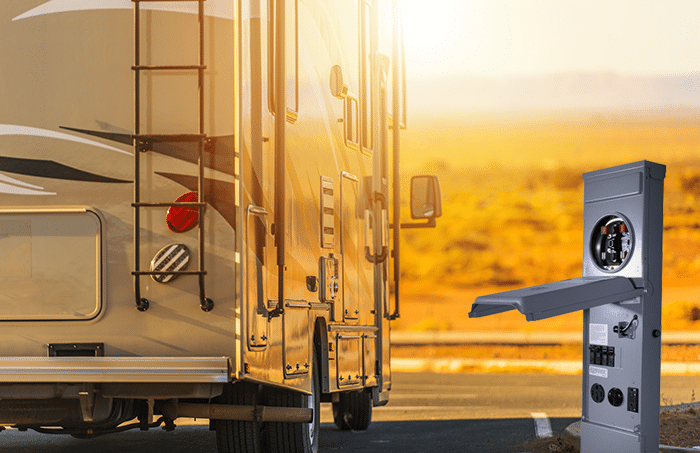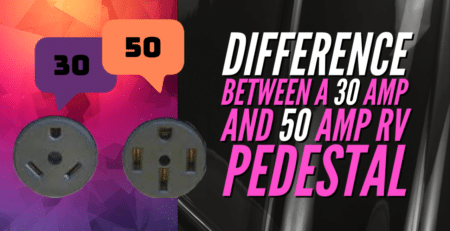If you’re like most people, the idea of hitting the open road in an RV is a tempting one. There’s just something about being able to travel wherever you want, whenever you want that appeals to us all. But before you hit the road, there are a few things you need to know about your RV’s electrical requirements. In this blog post, we’ll discuss what you need to know so that your trip is smooth and enjoyable. We’ll also cover some of the hazards associated with RVing and how to avoid them.
Most campground pedestals offer both 30-amp and 50-amp service. There are requirements with the NEC – National Electric Code that actually require an RV pedestal that contains a 50-amp receptacle must also contain a 30-amp as well. This is important to know because not all RVs are equipped to handle 50-amp service. If you’re not sure whether your RV can handle 50-amp service, it’s best to err on the side of caution and use 30-amp service.

Another thing to be aware of is that some campgrounds only offer 30-amp service. This means that if your RV requires 50-amp service, you’ll need to find another campground that can accommodate you. It’s always a good idea to call ahead and check on the electrical requirements of the campgrounds you’ll be staying at so that you can make any necessary arrangements.
Finally, it’s important to know that there are some hazards associated with RVing. One of the most common hazards is carbon monoxide poisoning. This can occur if your RV is not properly ventilated. Another hazard to be aware of is electrical shock. This can happen if you come into contact with live electrical wires. To avoid these hazards, it’s important to be aware of them and take precautions to prevent them.
RVing can be a great way to see the country and experience new things, but it’s important to be prepared. Knowing your RV’s electrical requirements and being aware of potential hazards will help you avoid problems on the road. If you’ve never traveled in an RV before, there are a few things you need to know about your electrical requirements that will make life on the road much easier for you.
Happy travels!










Leave a Reply
You must be logged in to post a comment.